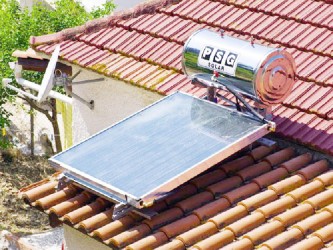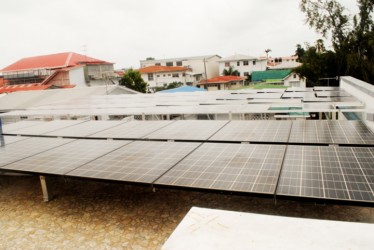Counterproductive energy and water management practices in the Caribbean are not only relentlessly driving up the cost of fuel in individual regional economies but also institutionalising environmentally harmful practices in the region, according to the International Finance Corporation (IFC), a member of the World Bank Group and the single largest development institution focused exclusively on the private sector.

At a March forum in Kingston, Jamaica to discuss sustainable energy finance opportunities in the region, an IFC market analysis disclosed that energy demand in the region associated with its development path was likely to double by 2027. In circumstances where the region shows no significant signs of easing it dependence on fossil fuels, it faces the considerable danger of exacerbating pollution and other environmental impacts, while diverting significant resources from Caribbean economies.
Similar counterproductive practices exist in the management of water with between 25 and 65 per cent of treated water being lost on account of inefficient and broken-down water distribution systems, which also result in lost energy due to high business and household dependence on accessing water through pumping.

With more than 97 per cent of the Caribbean’s electricity already generated from fossil fuels, electricity bills in some Caricom countries can soar up to six times higher than in the United States, creating a financial burden for households and particularly for businesses in the region.
While reducing reliance on fossil fuels and supporting more efficient energy production is critical to helping regional economies grow, businesses in the Caribbean face challenges associated with accessing financing to invest in clean, reliable energy.
Accordingly, the IFC has disclosed that it is developing a regional programme to support commercial banks in making funding available to help companies adopt more energy efficient practices and access cleaner energy sources,
At the Kingston forum, the IFC presented an analysis of sustainable energy market opportunities in five Caricom countries- Barbados, Belize, Jamaica, Grenada and St Lucia – and found that incorporating energy efficiency measures across these countries over the next few years could realise savings in the region of US$200 million.
The study found that solar water heaters offer a ready solution to water heating in the Caribbean. Barbados has already installed more than 50,000 solar water heaters, a development that saves the country some US$6.5 million a year on oil imports.
Regional businesses that participated in the March forum have reported that the tide may be beginning to turn but that lending institutions need to catch up. The IFC says it intends to weigh in by advising regional financial institutions to help businesses seeking financing for energy efficiency meet their needs. Additionally, the IFC is seeking to work with regional energy service companies and equipment vendors to support them in the structuring of projects for financing.
A precedent has already been set in the Dominican Republic where the IFC has helped a local lending institution, Banco BHD, become the first financial institution in the country to offer a credit line to finance sustainable energy projects. Over the past two years BHD provided US$24 million in financing for projects that are bringing more cost-efficient energy solutions to the Dominican Republic, from natural gas conversion to solar energy.






